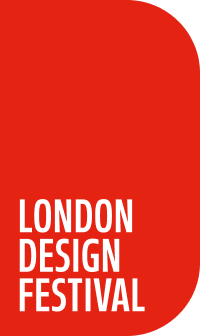In conversation: Harry Blakiston Houston
By Shawn Adams
“Insulate Ukraine emerged from an approach of focusing on real issues – rather than theoretical problems conceived in England”
Harry Blakiston Houston’s interests in engineering and maths stem from his rural upbringing in Yorkshire and the Sperrin Mountains of Northern Ireland. “Growing up on a farm, I had access to a lot of tools,” he explains of an environment that fostered his curiosity and passion for engineering. “There was always something to fix.”
This mindset eventually led Houston, 27, to read engineering mathematics at the University of Bristol. After graduating, he started a PhD in biotechnology at Hughes Hall, Cambridge. In 2023, he took a break from his studies to start a charity. The idea that has become Insulate Ukraine was born.
Insulate Ukraine – an NGO devised to design and install a pioneering open-source design for triple-glazed windows in bomb-damaged homes – derived from Houston’s desire to use his engineering acumen to help people in the war-torn country. He first visited Ukraine in April 2022, “to identify problems that needed solutions”, he explains. With winter approaching, it was clear that shattered windows were going to affect the livability of the area’s domestic buildings. “Insulate Ukraine emerged from this approach to focusing on real issues rather than theoretical problems conceived in England.”
Harry Blakiston Houston’s interests in engineering and maths stem from his rural upbringing in Yorkshire and the Sperrin Mountains of Northern Ireland. “Growing up on a farm, I had access to a lot of tools,” he explains of an environment that fostered his curiosity and passion for engineering. “There was always something to fix.”
This mindset eventually led Houston, 27, to read engineering mathematics at the University of Bristol. After graduating, he started a PhD in biotechnology at Hughes Hall, Cambridge. In 2023, he took a break from his studies to start a charity. The idea that has become Insulate Ukraine was born.
Insulate Ukraine – an NGO devised to design and install a pioneering open-source design for triple-glazed windows in bomb-damaged homes – derived from Houston’s desire to use his engineering acumen to help people in the war-torn country. He first visited Ukraine in April 2022, “to identify problems that needed solutions”, he explains. With winter approaching, it was clear that shattered windows were going to affect the livability of the area’s domestic buildings. “Insulate Ukraine emerged from this approach to focusing on real issues rather than theoretical problems conceived in England.”
His concept – initially self-funded, as Houston aimed to create a low-cost, low-resource solution – was ingeniously simple. Constructed from PVC piping, pipe insulation, polyethylene and duct tape, Houston’s shatterproof windows cost about $15 to make and take about 20 minutes to be installed by two people. “We require no manufacturing, no complex machinery and use easy-to-procure materials,” he says.
When Houston returned to Ukraine over Christmas 2022, he piloted the window system in the fractious eastern stretches of the country, specifically in the town of Izyum. “It was relatively safe, but still had dangers from landmines and remnants of the occupation,” he says. “The destruction was extensive.” To date, Insulate Ukraine has installed more than 30,000 windows in Lyman, Izyum, Nikopol and Kherson, protecting people from Ukraine’s harsh winters. “I want to see a world in which civilians do not need to freeze due to the oppressive acts of another nation.”
With the Russia-Ukraine conflict showing no sign of abating, Houston aims to continue his work in the country. “We’ve only just begun. There are 10 million windows that require fixing and we’ve designed a system that can solve that." After that, he is keen to expand his creative remit to those affected by other wars. The Cambridge Consulting Network has identified Syria as an area of interest, he says.
Houston’s status as a recipient of LDF’s Emerging Design Medal is down to his aspiration to use engineering to help others, which has manifesting in work as considered as it is affecting. With Insulate Ukraine, he is showing the profound, practical power of design, eschewing personal kudos in the process.
“I see myself as an inventor who uses systems to solve problems,” he says. “When I was told I would be awarded the medal, I asked if it could go to the people on the ground in Ukraine, the civilians who stayed to help their community. They are putting their lives on the line every single day. I didn't win this award. They did."


)
)
)
)
)
)
)
)
)
)
)
)
)
)
)
)
)
)